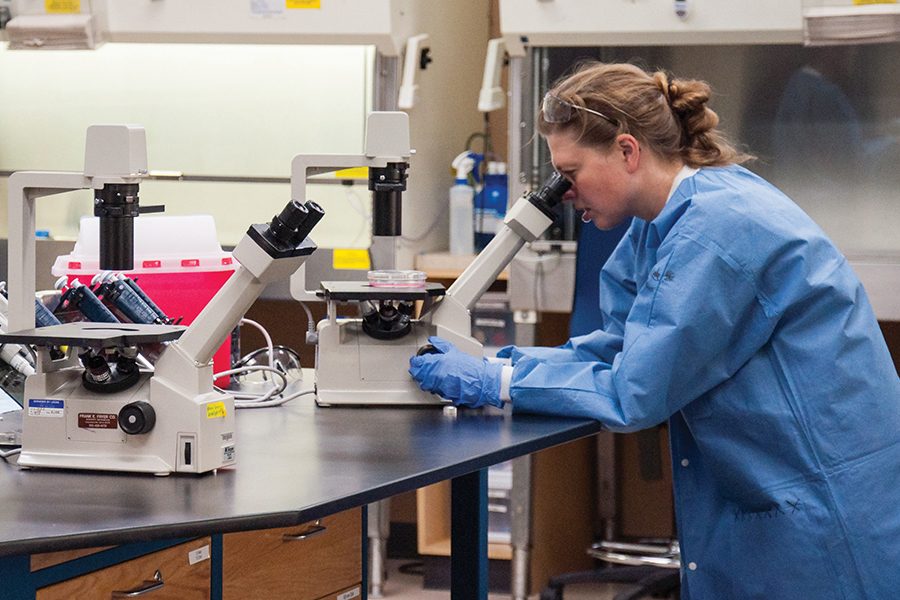Accessing STEM research
Access to peer-reviewed research papers are just as important as access to equipment, yet many papers are behind pay walls and out of financial reach of most students.
November 1, 2016
We often talk about our country’s sad statistics when it comes to STEM, which means Science, Technology, Engineering, and Mathematics. Much of this is based on the lack of emphasis in these fields, from kindergarten through high school.
But what about college? As students, we are allowed to choose our career paths, with wiggle room in credit hours for different classes we might want to try. But trying to seriously enter into any STEM related field can leave students frustrated.
Much of STEM is about group collaboration. It’s about research and review. As students, we are asked to make our own research papers at times, citing past studies to back up our own theories and information. This could be one of the most difficult parts for a student.
Research has become difficult to access. We must rely on what access to papers the college we attend can afford. They generally pay for subscriptions to major publishers in order to provide free access to their students. Research publishing has become a multi-million dollar industry, and those who need the access are the ones to suffer for it. This money does not go back to the researchers and authors of such studies. It is profit for the publishing company.
But perhaps we need to change something in our system. Luckily, with Madison College, you can go to your school librarian and request a form to access University of Wisconsin’s library system. This is a great opportunity to gain more access to papers that you may not otherwise get.
What about when you are home, trying to research your paper? University of Wisconsin does not allow you to access their online library catalog with the temporary card from Madison College.
Google Scholar is a great idea in theory, but they can only provide abstracts to papers. These papers are usually behind a paywall, on average you need to spend $18-$30 just to view the document.
This becomes an intensely frustrating process for those who wish to pursue a STEM major. College students are not known for their abundant time and finances. We make ends meet and we study. It has become a very large roadblock when research publishers are making it difficult to obtain information we need to be able to do our best work. We either try to make it work with what is available to us in our school, or we try to squeeze in time to get to a different library for materials. Or worse yet, we bite the bullet and pay for the research article we need online.
We cannot blame the schools, or even the publishing companies. We need to really think about why we are making science and math so hard to access. Publishers claim these millions of dollars they receive mostly go into the publication process itself. But we live in the age of internet and digital devices. Very rarely are we requesting a hard copy of a study we will only use once. What is the publishing cost of an online research article?
We cannot complain about our low national science scores and lack of interest, yet at the same time keep the same system we have. As students we are lucky to even have some access to research. What about high school students or the general population? Could we better prepare high school students for college level research if they were able to access scientific articles more easily?
The research publishing industry has been around for decades, but we are now entering the internet age, where everything is cheap and abundant. We need to stop holding on to the past. We can find free information that is rarely accurate in a matter of minutes. Publishers need to balance the internet, providing cheaper or free access to research articles.
Perhaps it is naïve to think that this would make our nation rise in worldwide STEM statistics. But we are a curious species. We look up everything on the internet. Maybe we would do better with more accurate information that was just as easy to obtain as a Wikipedia article.































